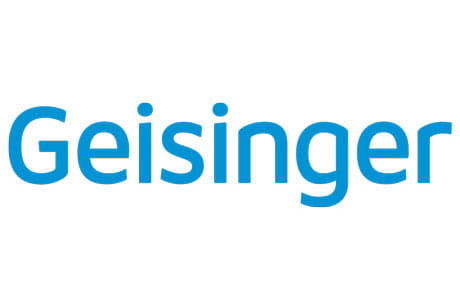Researchers discover protein complex that promotes cancer growth
Disruption of complex hinders cancer growth without harming normal cells
In a study published this month in Cell Reports, the team used small molecules known as peptides to disrupt a complex of two proteins, RBM39 and MLL1, that is found in breast cancer cells but not in normal cells.
The research team discovered that the abnormal interaction between RBM39 and MLL1 is required for breast cancer cells to multiply and survive. The team developed non-toxic peptides that prevent these proteins from interacting in breast cancer cells, disrupting their growth and survival.
“Because these proteins do not interact in normal cells, the peptides we developed are not harmful to them,” said Anne M. Moon, M.D., Ph.D., professor at Geisinger’s Department of Molecular and Functional Genomics and senior author of the study. “This offers promise for future non-toxic cancer treatment.”
Further laboratory tests are needed before the treatment could be trialed in humans, Moon said.
Geisinger’s cancer research also includes the MyCode Community Health Initiative, which returns clinically relevant results to participants at increased genetic risk for cancer, including breast, ovarian and colon cancers. The National Cancer Institute recently awarded Geisinger a 5-year, $3.6 million contract to study the role of genetic variation in cancer through the MyCode initiative.
Geisinger has an exciting research environment with more than 50 full-time research faculty and more than 30 clinician scientists. Areas of expertise include precision health, genomics, informatics, data science, implementation science, outcomes research, health services research, bioethics and clinical trials.
About Geisinger
Geisinger is among the nation’s leading providers of value-based care, serving 1.2 million people in urban and rural communities across Pennsylvania. Founded in 1915 by philanthropist Abigail Geisinger, the non-profit system generates $10 billion in annual revenues across 134 care sites - including 10 hospital campuses, and Geisinger Health Plan, with 600,000 members in commercial and government plans. The Geisinger College of Health Sciences educates more than 5,000 medical professionals annually and conducts more than 1,400 clinical research studies. With 26,000 employees, including 1,600 employed physicians, Geisinger is among Pennsylvania’s largest employers with an estimated economic impact of $14 billion to the state’s economy. On March 31, 2024, Geisinger became the first member of Risant Health, a new nonprofit charitable organization created to expand and accelerate value-based care across the country. Learn more at geisinger.org or connect with us on Facebook, Instagram, LinkedIn and X.

For media inquiries:
Ashley Andyshak Hayes
Marketing Strategist
Marketing & Communications
570-271-8081
arandyshakhayes@geisinger.edu
